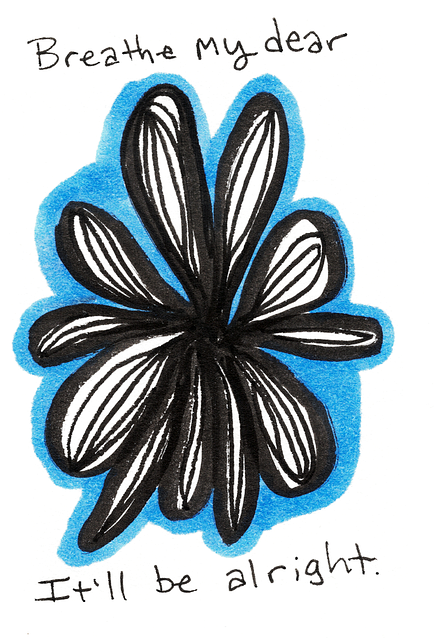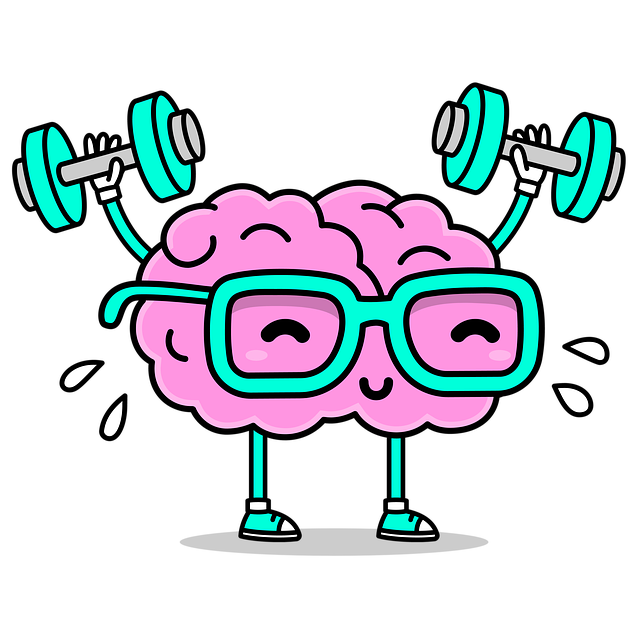The booming mental wellness app market caters to diverse needs, with strategies focusing on specific demographics and evidence-based therapies like Parker Acceptance and Commitment Therapy (PACT). Apps integrating PACT offer personalized goal-setting, meditations, and tracking for anxiety, depression, and stress. Marketing through social media, engaging content, free trials, and community building differentiates these apps and attracts a wide audience. Tracking key metrics like daily active users, retention rates, and user feedback ensures app effectiveness and informs content development. Real-world success stories and user-generated content further enhance app advocacy and contribute to improved mental wellness outcomes.
In today’s digital age, mental wellness apps are revolutionizing self-care practices. This article explores a strategic marketing approach for an app integrating Parker Acceptance and Commitment Therapy (PACT). By understanding the competitive mental wellness app market and defining target audiences, we can craft effective messaging. Utilizing digital channels, such as social media and content marketing, alongside PACT’s evidence-based principles, will attract users seeking personalized therapy. Measuring success involves tracking user engagement and retention, ensuring the app provides tangible benefits.
- Understanding Mental Wellness App Market and Target Audience
- Integrate Parker Acceptance and Commitment Therapy (PACT) into App Features
- Crafting Compelling Marketing Messaging for PACT App
- Utilizing Digital Marketing Channels Effectively
- Measuring Success and User Engagement with PACT App
Understanding Mental Wellness App Market and Target Audience

The mental wellness app market is a growing sector within the broader digital health industry, with an increasing demand for accessible and personalized tools to support mental well-being. Understanding this dynamic landscape involves recognizing diverse user needs, from stress management and anxiety relief to specific therapeutic approaches like Acceptance and Commitment Therapy (ACT), as popularized by Parker. By delving into these nuances, app developers can tailor their marketing strategies to target specific demographics effectively.
Identifying the target audience is crucial in this process. For instance, young adults struggling with self-esteem issues or professionals facing high-stress work environments could be prime users of mental wellness apps. Implementing a Community Outreach Program that engages schools, workplaces, and community centers can help reach these audiences directly. Marketing efforts should emphasize how apps provide accessible, on-demand support for common mental health challenges, fostering a sense of empowerment and self-care through evidence-based practices such as ACT techniques.
Integrate Parker Acceptance and Commitment Therapy (PACT) into App Features

Integrating Parker Acceptance and Commitment Therapy (PACT) into mental wellness app features is a strategic move that aligns with the growing demand for evidence-based practices in digital healthcare. PACT, developed by Dr. Steven Hayes, focuses on fostering acceptance of difficult emotions while promoting committed action towards meaningful goals. This therapeutic approach can be effectively translated into app functionalities, such as personalized goal-setting exercises, mindfulness meditations tailored to emotional regulation, and tracking mechanisms that encourage users to engage in valued activities despite challenges.
By incorporating PACT principles, mental wellness apps can cater to a broader user base, including those seeking support for anxiety, depression, and stress management. The app’s ability to offer tailored coaching programs based on individual needs, coupled with the provision of Healthcare Provider Cultural Competency Training to ensure inclusive practices, positions it as a valuable resource in the digital mental health landscape. This not only enhances user engagement but also contributes to the overall effectiveness of emotional regulation strategies within the app community.
Crafting Compelling Marketing Messaging for PACT App

The PACT App stands out as a innovative solution for mental wellness, drawing on the powerful framework of Parker Acceptance and Commitment Therapy (PACT). To effectively market this app, the messaging must resonate with both individual users seeking self-improvement and healthcare providers looking to enhance their patient care. Emphasize how PACT offers practical tools for emotional regulation and mood management, addressing a broad spectrum of mental health concerns.
Targeted marketing should highlight the app’s ability to empower users through cultural competency training in a digital format that’s accessible, engaging, and evidence-based. By showcasing real-world success stories and demonstrating PACT’s effectiveness in improving quality of life, the app can attract a diverse user base. Incorporate relatable content that speaks to common mental health challenges, while also appealing to healthcare providers’ need for innovative solutions that complement traditional therapy approaches.
Utilizing Digital Marketing Channels Effectively

In today’s digital age, mental wellness apps can leverage various online channels to reach and support users effectively. Utilizing social media platforms like Instagram and Facebook for content marketing, including engaging videos and articles on topics like Parker Acceptance and Commitment Therapy (ACT), can attract a broad audience. This strategy not only raises awareness but also builds trust through educational content that highlights the app’s unique features.
Integrating emotional intelligence and resilience-building exercises within the app’s marketing campaigns can further differentiate it from competitors. By offering free trial periods or samples of the app’s guidance, potential users can experience firsthand the benefits of mental wellness journaling exercises. This approach encourages downloads and subscriptions, fostering a community that values open communication about emotional health and personal growth.
Measuring Success and User Engagement with PACT App

Measuring success and user engagement with a mental wellness app like PACT (Parker Acceptance and Commitment Therapy) is paramount to understanding its impact and effectiveness. This involves tracking key metrics such as daily active users, retention rates, and user feedback. By analyzing these data points, developers can identify trends and patterns in app usage, highlighting features that resonate most with users. For instance, high engagement during specific therapy modules or mindfulness practices can guide future content development, ensuring the app continues to cater to users’ evolving needs.
Moreover, integrating user-generated content through Mental Wellness Podcast Series Production can provide qualitative insights into the app’s impact on individual journeys of inner strength development and mental illness stigma reduction efforts. Positive testimonials and success stories not only serve as powerful marketing assets but also foster a sense of community around the app, encouraging continued usage and advocacy. This holistic approach to measurement allows for data-driven decisions that enhance user engagement and ultimately contribute to improved mental wellness outcomes.
Developing a comprehensive marketing strategy for a mental wellness app that incorporates Parker Acceptance and Commitment Therapy (PACT) requires a deep understanding of both the target audience’s needs and the unique value proposition of PACT. By seamlessly integrating PACT into app features, crafting compelling messaging that resonates with users’ desire for improved mental well-being, and leveraging digital marketing channels effectively, creators can establish a strong presence in the mental wellness app market. Measurable success is achieved through gauging user engagement and continually refining the app based on user feedback, ensuring a tailored and impactful experience.











